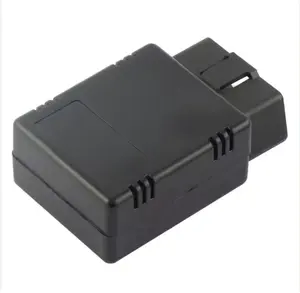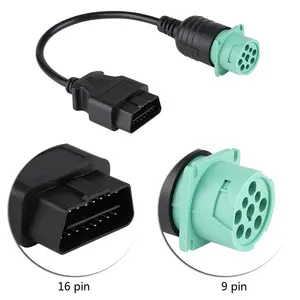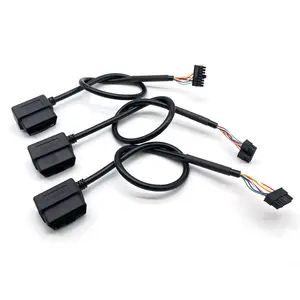Understanding the OBD II TTL Adapter for Arduino
The OBD II TTL adapter for Arduino is an integral component for automotive diagnostics and development projects. This adapter acts as a bridge between an Arduino microcontroller and a vehicle's On-Board Diagnostics (OBD) system, allowing for the monitoring and analysis of a car's operational parameters.
Technical Specifications and Functions
At the core of the adapter's functionality is its ability to translate the OBD II signals into TTL (Transistor-Transistor Logic) compatible with Arduino, enabling the retrieval of real-time data such as engine temperature, RPM, and vehicle speed. Users can leverage this data for a variety of applications, from custom dashboards to advanced vehicle telematics.
Design and Compatibility Features
The design of the OBD II TTL adapter is tailored to ensure compatibility with most vehicles that support the OBD II protocol. Its compact form factor allows for easy integration into existing projects, while the robust construction ensures durability for consistent use in various environments.
Applications in Automotive Projects
From hobbyists to professional developers, the adapter is versatile for an array of projects. Whether it's for developing custom applications, troubleshooting vehicle issues, or enhancing educational tools, the adapter provides a reliable connection to a vehicle's diagnostic system.
Installation and Integration
While the adapter is designed for straightforward use, it requires a fundamental understanding of Arduino programming and electronics. Users can integrate the adapter into their projects without the need for complex setup procedures, allowing for a focus on development and innovation.
Choosing the Right Adapter
Selecting the appropriate OBD II TTL adapter for Arduino is crucial for project success. Alibaba.com offers a variety of adapters to suit different project requirements, ensuring that developers can find the right match for their specific needs without the concern of compatibility issues.


































 浙公网安备 33010002000092号
浙公网安备 33010002000092号 浙B2-20120091-4
浙B2-20120091-4